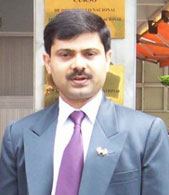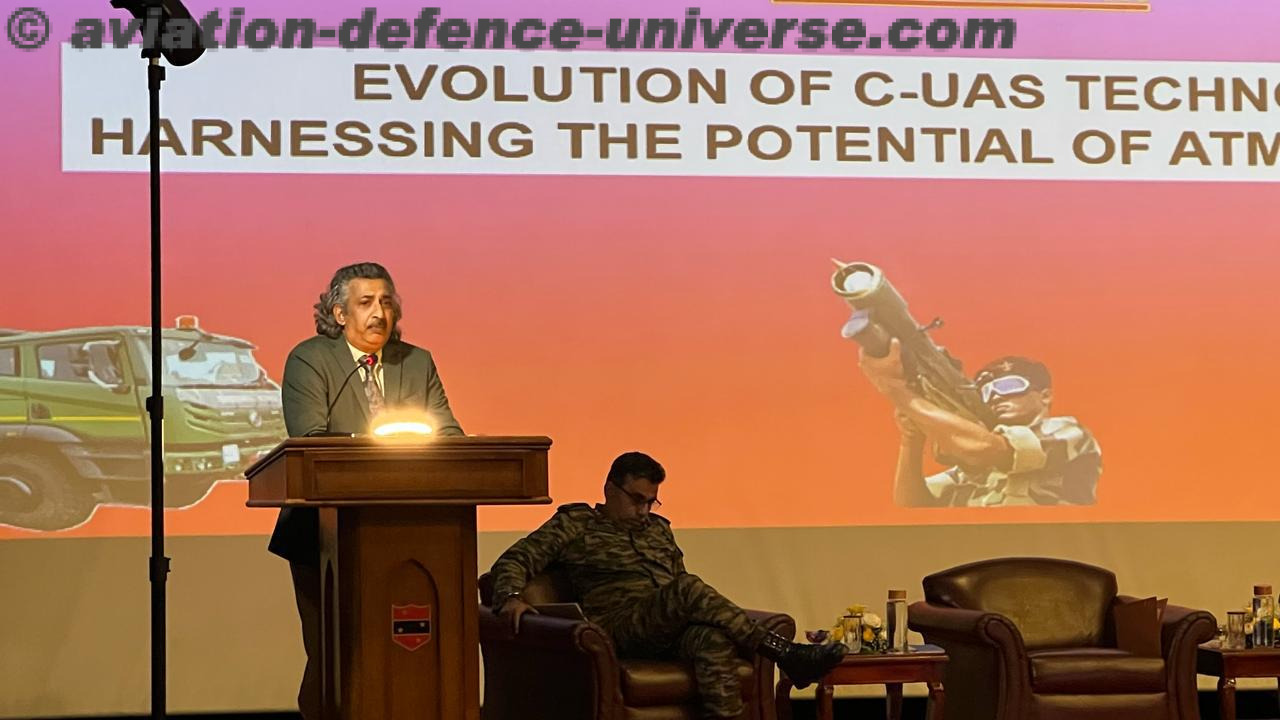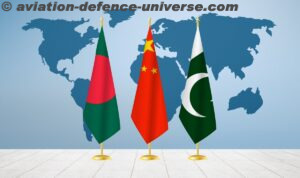
By Wg Cdr Vishal Nigam (Retd.)

New Delhi. 13 March 2022. As the world is in the midst of a major war, which despite of being fought between two nations, is the cynosure of global eyes, COVID-19 suddenly seems to have taken a backseat from headlines. But the change which the virus brought to the world is here to stay and has global impact.
Covid-19 – the venomous Boa Constrictor, unleashed by one nation on entire mankind – unique occurrence, unprecedented in history has squeezed the soul out of human life; but has it stunted the human potential to qualitatively grow? The pernicious virus created in a laboratory perpetrated by evil minds posits the ‘dark face’ of the human race capable of unleashing enormous destruction on the living planet. The invisible strand of protein that binds with the human cell has infected the entire race killing millions and leaving many more sick.
Is the world going to hell in a hand basket – locked for a year with millions dead many sick and others semi-dead? Humans deigned vipers waiting to sting with mutated venom – social distancing stigmatising trust between friends and family, hence family missing family time. Children denied the space to communicate in the playground – an essential platform to read one another – social skills as they move up in the value chain has hurt the society at large. The cracks caused by the disruption have left millions of uneducated educated lined up to challenge their destiny in the new busted social order dominated with egregious selfishness and scant sensitivity for the rest.
Is the new normal redefining the norms making life less liveable – further polarising the world based on a new class emerging out from a section of shamed early retiree workforce? Has humanity been devastated by a mutating virus created to wreak havoc or has the pandemic resulted in a new normal centred on the unexpected resulting in the ‘Power of You’ and less aversion to failures; hope replacing the idea of giving-up; minimalism making life more organic and, most importantly greater acceptance of today – a realisation that life is a mystery and thus more exciting and liveable?
I reckon that the strength of human resilience will shine on the dark side of the moon, and transform justified cynicism carved from the demonic present into hope for a better life in the future.
A century on the edge – the precipice of gloom inaugurated with the Y2K bug; quickly followed by a horrific terror attack on the soul of America and meltdown of dreams sold in a hurry resulting in the worst ever financial crisis. The two long decades of counter war on terror led to a million deaths with higher societal damage of immeasurable costs.
Through the decade of misery, humanity continued to live in ‘hope’ that the mystery of misery would soon be resolved. The world kept buggering on in the second decade until a different kind of bug was unleashed this time – not through a computer but thriving on the basic fabric of life – the core of humanity.
Tempus Fugit – the trauma of 9/11 and the unimaginable suffering inflicted upon the common man post the 2008 recession caused by the deflation of the housing bubble leading to a financial crisis – and today, the misery caused by the invisible protein strand at the start of this decade too will pass, and all will be fine!. In Dec 2008, it was the Bazooka – capital injection by the US Treasury into the nine American financial institutions to infuse liquidity. Thirteen years hence, in 2021, the injection, a virus inserted into the human race to fight against an unfamiliar protein strand.
Wars and pandemics, both impact inflation – while wars spur inflationary trends through an increase in aggregate demand; pandemics dampen inflation for a period, but both events push the economy in a state of flux. The global economy is transiting through a phase of low growth and a high rate of unemployment, and trends suggest that growth in the coming decade could be stunted compared to the pre-pandemic decade – the slowest period of growth since the end of the ‘War’.
In the next phase, most governments will wean away from the stimulus and drive growth by minimising expenditure provided the pandemic dissipates into an endemic. It has been observed that pandemics leave behind deep scars adversely impacting the lives of many; more belonging to the lowest bracket who will also suffer the weight of being at the bottom of the pyramid. This time around recovery from the shock could take years with greater stress on unemployment and the government’s inability to stimulate demand in the economy.
The pandemic has forever altered the lifestyle of a large section of society, and will further impact the way of life and choices people will make in the coming years. The hysteresis effect will take control and drive the rate of unemployment. Altered habits due to stress and anxiety will shift consumer behaviour – a decrease in aggregate demand and trauma of early retirement will also transform spending habits in the post-pandemic era. Consumerism will be pushed aside for some time in favour of frugality, and the demand will be driven more by needs and less by wants in the years ahead.
Covid-19 has also exposed severe fault lines in the way education was being imparted to more than 300 million primary and secondary school students in India, crowding educated uneducated and inadequately skilled workforce into pipe dreams, when in reality, such a world had seized to exist.
The present education system lies squeezed out of new ideas and students overburdened with frivolous learning, leaving them with little or no time to ponder outside the outlined framework – thus stymieing the bud; never to blossom into a flower. Both, stress due to a result oriented curriculum causing anxiety in one stratum, and under-utilisation of available tools to educate the other section are killing the child inside a child thereby creating a generation of uncreative and passive minds. The online tools tested during the pandemic will help bridge this gap, find ways to empower the traditional model, and bring greater equity into the present education system.
A visible divide between urban and rural; the haves and the have-nots; is becoming more prominent than ever before. In India, more than 10 million people were ejected out of the workforce – half of them walked back home hundreds of miles away after the announcement of a total lockdown in 2020. The letter ‘K’ often used to indicate a type of economic recovery is becoming a metaphor for a divided society where the rich are getting richer, poor poorer, the entitled educated, and the less entitled further deprived, health available for those who can buy and others left to bet against the odds. A new life form is incubating in a whole new world, but the human race will keep buggering on despite the odds. A new normal will emerge through growth in the unexpected sectors replacing the more familiar and traditional sectors.
A new world order is emerging in the geopolitical environment where revisionist states will challenge the status-quo and give birth to new fault lines in Trans–Atlantic and Indo-Pacific region. Apart from the technology and infrastructure sectors; the arms industry is emerging as the new sunrise sector – overall sales of military arms by top 100 suppliers peaked during the pandemic years. China, the alleged perpetrator of the virus too witnessed growth in the export of arms. Defence is emerging as a key driver for growth with the potential to retain employment and push technology in the new sectors.
The fundamental laws in physics apply to the essential philosophy of life – a body will remain at rest or keep moving unless acted upon by a force – metaphorically; life goes on despite odds until the ultimate force lays it to rest. Life has changed since the pandemic but like the famous Iranian adage translated into English, – this too shall pass and in the battle between the good and the evil – ‘change’, the only constant will persist and be etched in a new normal.
(Wing Commander Vishal Nigam (Retd.) is a Delhi-based strategic analyst. He is the author of Dragon in the Air Transformation of Aviation Industry and the Airforce. The views in the article are solely the author’s. He can be contacted at editor.adu@gmail.com. Data & quotes courtesy : PWC, Brookings, Brown University & Financial Times)































































































































